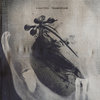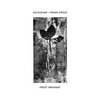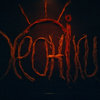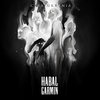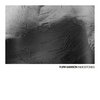How Gloomy Artists In Southern Ukraine Are Responding To The War
Ukrainian journalist and musician Kseniia Yanus meets industrial & dark folk artists who continue to create music despite the challenges of war.
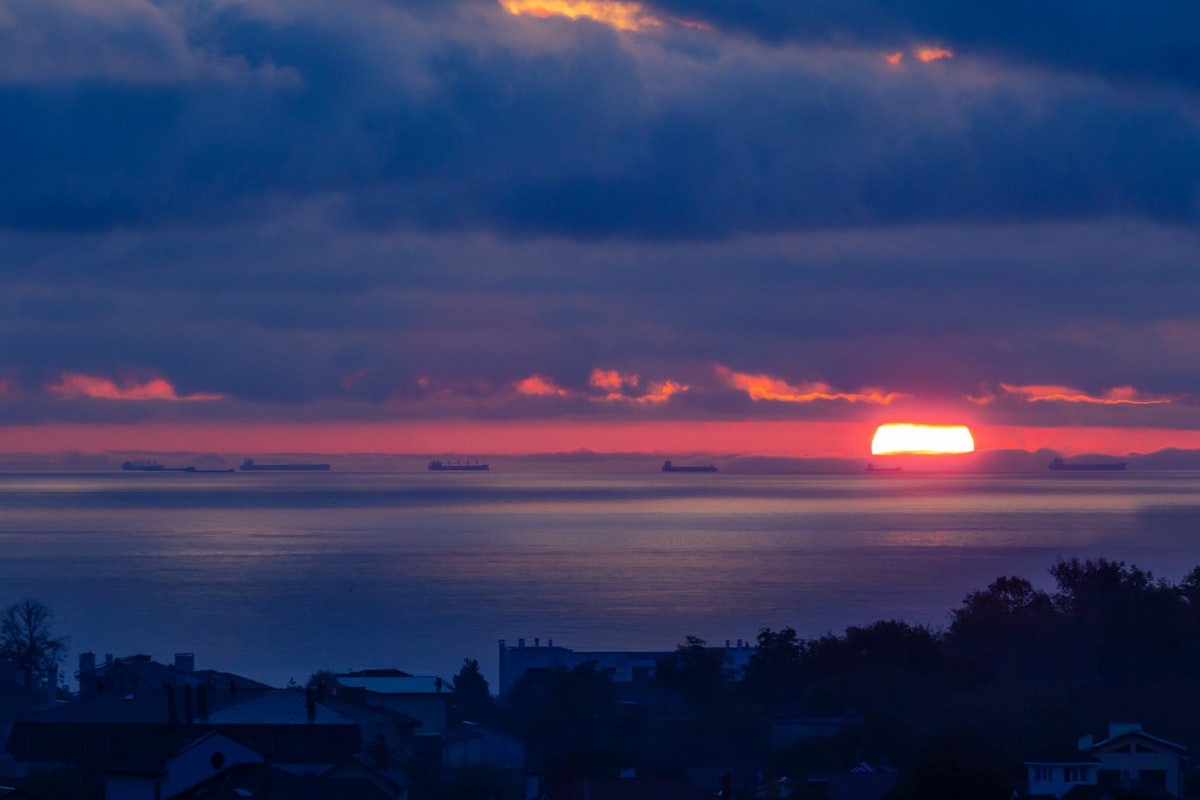
Editor’s Note: It is two years since the full-scale invasion began in Ukraine (10 since the initial occupation) and in recent months it increasingly feels as if news from the war zone features less and less in international headlines. Over a series of pieces this year, we’re dedicating some of the budget from our supporters to commission guest articles by local music journalists who will allow us to hear stories of what life has been like for members of the music community.
To begin, we reached out to musician and journalist Kseniia Yanus who spoke to artists in the industrial and dark folk scenes. In this essay, which is filled with music recommendations, artists in some of the worst affected areas in the south of Ukraine discuss what surviving the occupation has been like.
If you like any of these tracks, please consider supporting the acts on Bandcamp (this article will be unlocked for free subscribers on Bandcamp Friday - May 3rd 2024).
Historically, the south of Ukraine has been rich in dark industrial music. Since the early 90s, numerous projects and labels have been thriving in the small towns and in the large cities in the south, with artists creating and releasing noise, industrial, and its sub-genres, such as dark folk.
Some iconic projects will forever stand out in our history: one of them, the most famous Ukrainian dark folk band Nekraїna, ceased to exist due to the death of its founder Heorhiy Charsky in 2017. The Odesa-based band was celebrated for the 2002 album Death in August, which is a collection of Ukrainian-language covers of songs by English anti-fascist punks turned dark-folksters Death in June (the record was released with Douglas Pearce's personal consent).
The Ukrainian industrial music scene lives on amidst the sounds of shelling and the wailing of air raid sirens, which have unfortunately become part of everyday life.
In the Ukrainian south, where the war has been most intense, dark music projects are still releasing music. Ukrainian journalist and musician Kseniia Yanus spoke to a few artists who continue to create music, despite the difficult challenges of war.

Nova Kakhovka — music in occupation
Nova Kakhovka is a small town in the Kherson region, founded in the early 1950s at the same time as the Kakhovka hydroelectric power plant.
This town of 74,000 people could be called the unofficial capital of Ukrainian noise and industrial music. Before the full-scale Russian invasion, Nova Kakhovka hosted the “Buddha Noise” noise music festival. It was held several times a year and brought together the most interesting representatives of Ukraine's experimental scene under one roof.
The city met its 50th anniversary (February 28, 2022) under occupation, including the musicians Yurii Samson and Andrii Kozhukhar.
Andrii is a musician from Nova Kakhovka, known for his participation in the projects Kadaitcha, Akhluth, Fogscape, and his solo project Kojoohar.
“In the early days, they fired from the city on the opposite bank of the Dnipro... The occupiers brought a lot of [military] equipment here. It was impossible to enter or leave Nova Kakhovka, there were numerous cases of shelling of civilian transport and people were killed,” — Andrii shares his memories of the first days of the full-scale Russian invasion.
Yurii Samson, another participant of Kadaitcha, as well as Starless, Библиотека Просперо (Prospero Library), Osfill Klayse, and other projects, organizer of the local Buddha Noise festival, recalls life in the occupied city:
“We lived in an occupied city — constant patrols of the Russian occupiers, queues for medicines and food. The Russians did not allow most of the supplies to come in, they shot civilians.”
And even under the difficult conditions of occupation, Andrii and Yurii released a double single, “Тьмяний кут” (Dark Corner). It's a split of their two projects, Starless and Kojoohar.
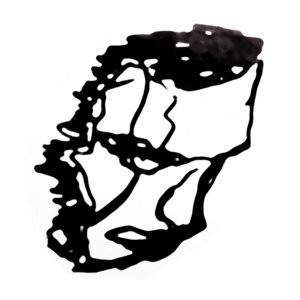
Yurii says about the place of music in the occupation: “Even during the occupation, I sometimes finished projects when the shelling was happening. For me, this is an important thing, more than just accompanying some events, more than an opportunity to release tension, although this also works. But it's something like, ‘just don't touch my drawings!’”
According to the musicians, this release is an attempt to express their severe psychological and physical alienation.
“For a long time, since the beginning of the full-scale war and occupation, there was no time for music, no thought of listening or creating anything, the situation was too unfocused," says Andrii. "But one day, Yurii and I decided to create a track each and publish a split release “Тьмяний кут” (Dark Corner), capturing an existential snapshot of time for ourselves. After that, the work in general moved forward, in particular on Kadaitcha, and in it, we really found a strong refuge from the outside world, a sense of hopelessness and stress. Working together on the “Tramontane” album is probably the only pleasant memory from the occupation period.”
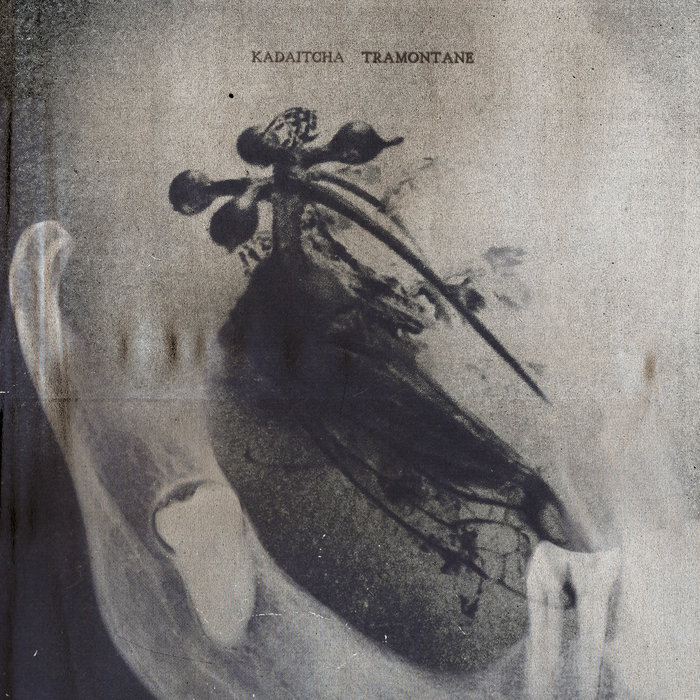
After spending six months in the occupied city, the musicians finally escaped from occupied Nova Kakhovka to Estonia. They had to drive from the occupied territories through Russia, which was a stressful experience in itself. In addition, the car broke down, which made the journey to the border difficult. As a result, they managed to cover 2000 kilometers in a week.
“I took all my projects on hard drives and hid them in my belongings. The disks, tapes, books, and tools were left there. It's hard to comment on it, it's half a life,” — Yurii shares.
The escape from the occupation saved the musicians from the consequences of the terrorist attack on the Kakhovka hydroelectric power station.
The destruction of the Kakhovka hydroelectric power plant dam is a war crime (see: UN press release) and an act of ecocide committed by the occupation forces of the Russian Federation on June 6, 2023. As a result, about 55 thousand hectares of forest, dozens of settlements were flooded, at least 14 people died and tens more went missing.
Due to the loss of their own equipment and not very favourable conditions for creating something new, the musicians are now trying to finish everything they've not yet completed.
Yurii tells us about the change in his view of his own music through the prism of war, “I have a lot of different material, mostly started before the war. Yes, there are some compositions that were “about sound,” about contemplation, and now they have become about hatred and contempt. This is especially true for lyric projects, when you need to express your disdain directly. But still, I usually pursue the idea that was originally laid down, at least I listen to it.”
And while Andrii Kozhukhar doesn't need to reinvent the inherent meanings, his technical approach to creating new compositions has changed a bit:
"Without musical equipment, at first I had to return to purely virtual projects, but even when I eventually acquired some new instruments, their difference from the old and familiar ones still causes some differences in the process. I noticed that in the lack of free time to realize my ideas, in my solo project I started thinking about some more conceptual things that I will have to realize later or maybe are already being realized, but very slowly.”

Recently, Andrii released “frost drought”, a collaboration with frank ursus, on the German label ant-zen. His colleague on the label and other projects, Yurii Samson, considers it extremely important to collaborate with European musicians: “I personally hope for European integration in many ways, including the entry of Ukrainian musicians on the world stage, and coexistence in this direction is important.”
Mykolaiv — dark folk in the neighbourhood of occupation
Mykolaiv is located 100 kilometers west of Nova Kakhovka. From the first day of spring 2022, Russian occupation forces began to surround this city of half a million people, located 65 kilometers from the Black Sea. While neighbouring Kherson was occupied, Mykolaiv was still under attack and surrounded.
In April 2022, the Russian occupiers destroyed a water pipeline that supplied water from the Kherson region to Mykolaiv. For more than a year and a half, Mykolaiv residents have not had drinking water in their homes, only industrial water has been supplied. Drinking water has to be collected at special water collection points or bottled water has to be bought in stores. The city also still suffers from rocket and drone attacks.
All this time, the musicians of the dark folk project Wiseword.Nidaros have been living in the city. Serhii Hololobov founded the project in 2010 and remains a permanent member of it to this day. The main topics that Wiseword.Nidaros works with are Orthodox Christianity and the history of Ukraine.
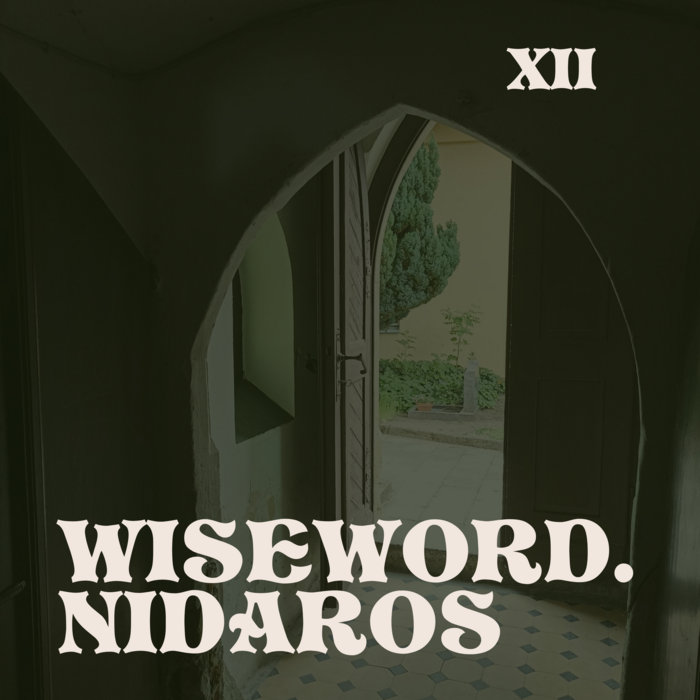
During the years of the big war, Wiseword.Nidaros released a compilation album dedicated to the band's 12th anniversary, and a new full-length album. Serhii claims that his approach to creating music hasn't changed much.
First, he writes lyrics, where he immediately lays down certain rhythmic nuances, and then creates melodies for the lyrics based on this:
“I really like to use something 'archival' (old recorded parts of instruments that are lying around on a computer somewhere, or some guitar riff that was invented 10+ years ago). For example, on the albums “Альфа [Хрестоматія] Ωмега” (Alpha [Chrestomatia] Ωmega) and “Тератургіма” (Teraturgyma") there are such things. But it seems that I have already exhausted all the 'reserves' of archival recordings, unfortunately.”
Before the full-scale invasion, the Wiseword.Nidaros project had planned to be paused and not to release new songs. However, “during the war, music is written. Although not immediately. For most of 2022, right after the full-scale invasion, we didn't really want to do anything. But in 2023, I returned to writing songs again. Music has never helped me cope with stress, so it did not help me during the war either.”

In 2023, the project unexpectedly released the album “Хроніки” (Chronicles), dedicated to the memory of Serhii's sister and aunt, who died last year. This album combines C.S. Lewis's Chronicles of Narnia series with the music of Wiseword.Nidaros and a magical atmosphere.
Serhii says, “We are convinced that lies and evil should be responded to with the truth. And the truth, in our opinion, is contained, in particular, in the works of C.S. Lewis, which are always relevant because they tell the best story about God, who is the Truth.”
Serhii calls the lyrics of this album the most personal thing they have ever written. Each song on this conceptual album is an appeal to God by the lyrical self, who reflects on the ideas contained in the fantasy series. The album's lyrics feature biblical imagery, ancient and medieval symbolism by C.S. Lewis, and direct and “hidden” quotes from old Ukrainian carols.
When asked whether it is possible to write about something that is not related to the war during the war, Serhii answers:
“I think that even if you write about something completely different, the surrounding reality will still “shine through” the work you create. And you can't escape from it.”
The latest album, like the previous ones, was released by Wiseword.Nidaros on their own label. However, this did not prevent the band from attracting the attention of foreign listeners:
Serhii says: “It seems to me that there are more foreign audiences — Western and Central European — and the feedback has become a bit more powerful. In general, the number of listeners has increased significantly.”
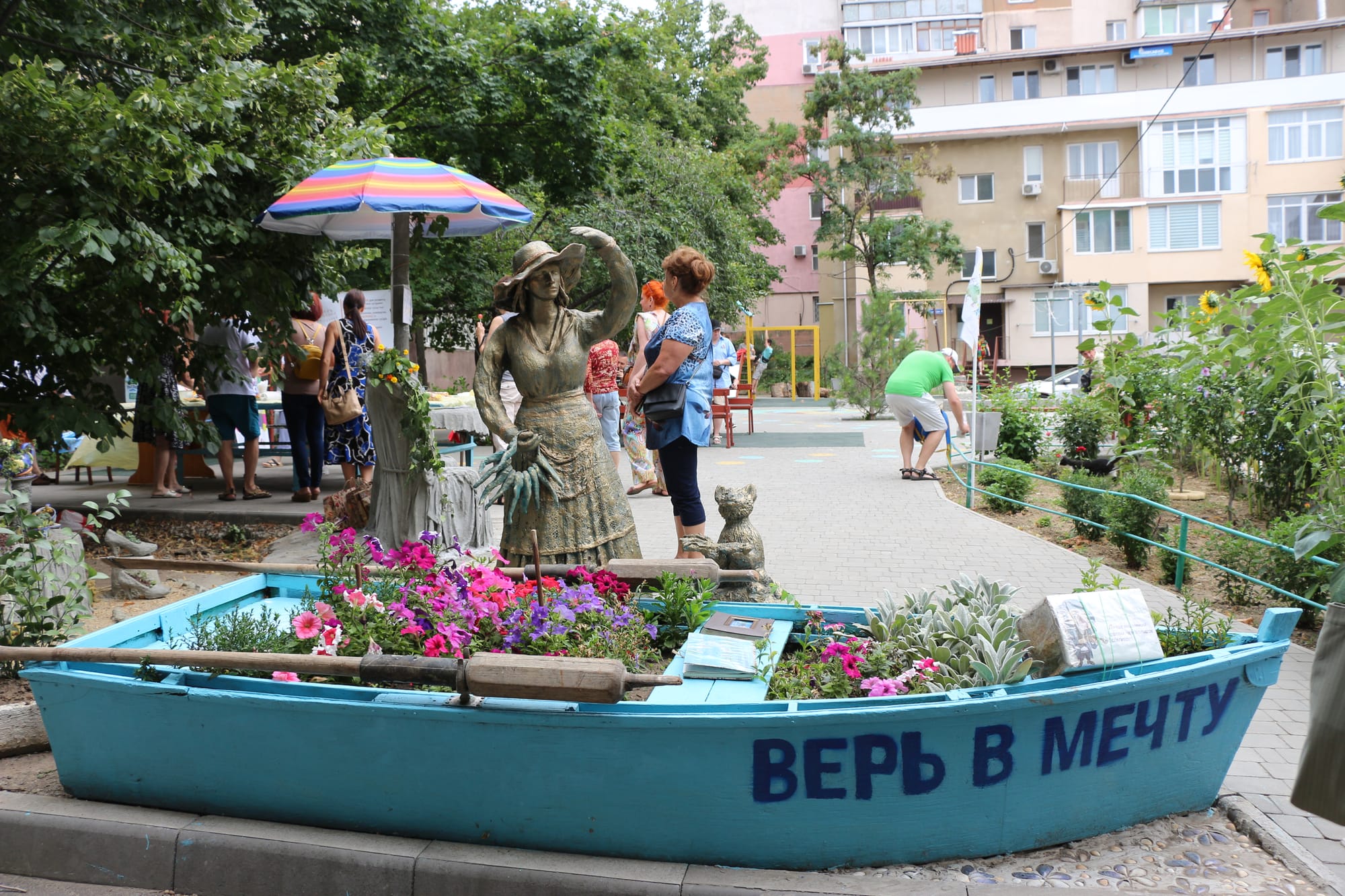
Odesa — electronic reflections under rocket fire and drones
Odesa is a city of one million people on the Black Sea coast. Thanks to the heroic defense of Kherson and Mykolaiv, Odesa was not occupied or surrounded for a single day of this war. However, the city suffers from constant attacks by missiles and drones.
The couple Nata Hrytsenko and Leonid Zhdanov live and create music here. They are the founders of the dark folk duo Casa Ukrania, the Khatacomb label, and a number of side projects.
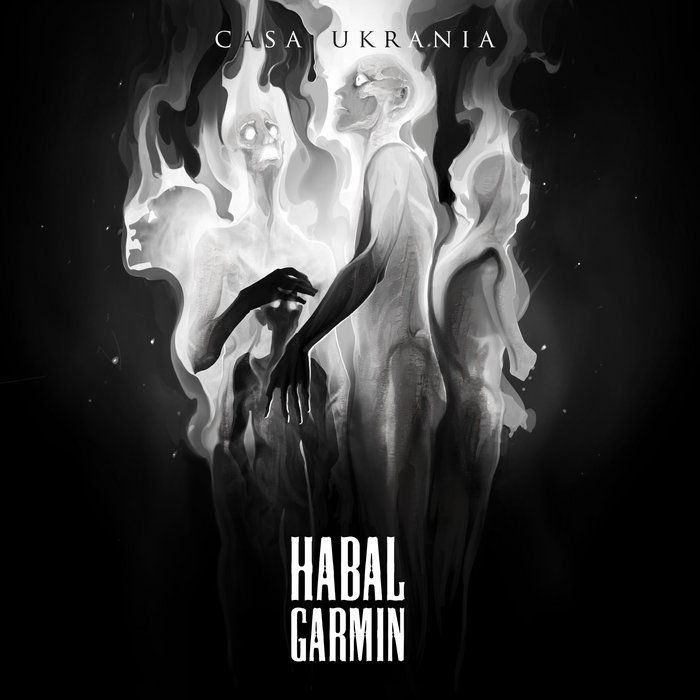
Before the full-scale invasion, Casa Ukrania started working on an album about the occupation of Odesa during World War II and studied a lot of materials on the topic.
The band comments on the album: “When we watched the news from the newly occupied territories in the east, north, and south in 2022, it became clear that history was repeating itself in a certain way-although, by a cruel irony, the occupiers were now the other side.”
The finishing of this album was morally difficult for the band, but very necessary, both personally and from a historical perspective. The musicians saw the present-day war as an opportunity to reflect on their fresh pain through the history of eighty years ago.
The musicians note, “for us, the war is too big and painful an experience to avoid or distract from, so almost everything we do now is somehow connected to it, even if it seems different without the context of music.”
The preparation for this album was thorough: the musicians visited local museums, watched thematic films, read historical research and studied eyewitness memories of the period, and thought about possible musical references.
Leonid says, “For me, the approach to creating music has fundamentally changed because after the shelling of our neighbouring houses with human casualties, it became clear to me that the time we have is very short, and every day in Ukraine may be the last.”
This prompted him to make his debut as L'Arc de Langeron and look for ways to optimize his workflow, which would allow him to write music faster. On this release, Leonid turned to “light and melancholic music, a mixture of analog timbres and children's instruments” to express “reflections on the transience of life, childhood memories and childhood traumas that a new generation of young Ukrainians is experiencing right now.”

“I started returning to music back in March 2022 to organize my thoughts and cope with the initial stress." Leonid says. "The same thing happened again this winter, at the peak of my medication for my mental state: music was the first thing I took up as soon as I was over the depression, and that's how the debut album of the L'Arc de Langeron project appeared.”
The musicians also plan to create the new Casa Ukrania album soon to realize all the current ideas this year, before the band's tenth anniversary in the Autumn.
This year, the band plans to finish the long-promised collaborations with foreign friends, release the Casa Ukrania anniversary album, continue to develop Leonid's solo project L'Arc de Langeron, and try to make at least a two-track release on vinyl:
“For the upcoming album, we are preparing some songs that were created before the full-scale invasion and are not formally related to it, but the form in which they will be presented will reflect our current moral state. The new songs written over the past two years are almost exclusively dedicated to this topic.”
Epilogue
Yurii Samson:
“Our times show the collapse of the human cultural and civilizational paradigm. People are killing their own kind, and they are not deterred by great operas, writers, or religions. The twentieth century had already shown humanity the most terrible wars in history, many compositions and literature were written, an important example for me was the existentialists, for example. But it didn't change anything. Humanity was trying to consolidate the slogan “never again,” and someone decided that “we can do it again.”
Often, cultural heritage reflects social events as an echo, as a rethinking, and a composer cannot help but react to such catastrophic things. But I hope that there is a layer that even war cannot shake. It's not even a layer, it's a kind of line in the spectrum, but it is the most important cultural achievement. You can be disappointed in humanity, but take up this work again.”
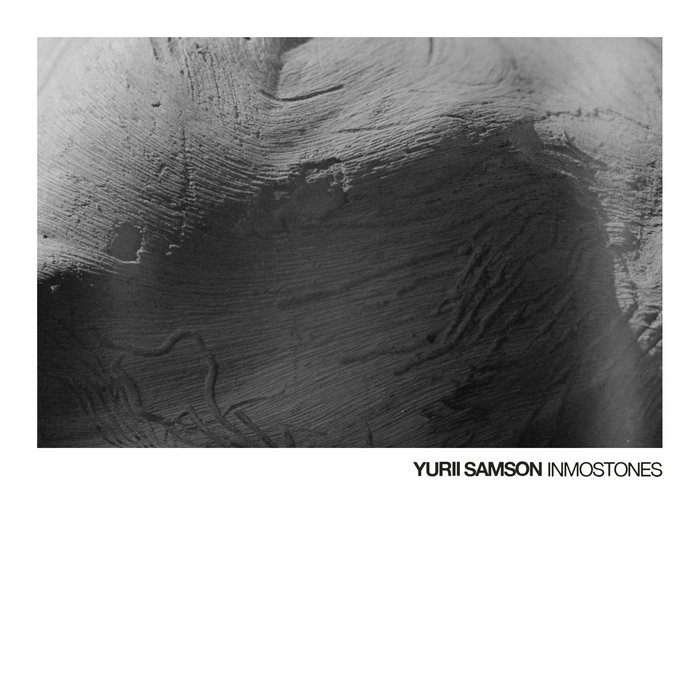
About the author: Kseniia Yanus is a journalist at Neformat.com.ua. She is a member of the bands Bez Gruntu and YouzMuzak. Kseniia is also a co-founder of the regular experimental electronic events Noise Every Wednesday.
Further Exploration
- Prospect's latest podcast with Anne Applebaum from The Atlantic on Ukraine, the forgotten war, 2 years on (really great summary of recent headlines)
- Kyiv Post on how the youth of Kyiv refuse to go gentle into a night threatened by Russian missiles and drones. They remain defiant. Step into Ukraine’s new reality as seen through the prism of war.
- Eurozine on The Sound of Resistance: how Ukrainian musical culture is under attack from Russia. But the music goes on, despite all odds, with artists contributing in different ways to the war effort.
- The Quietus on Ukrainian music scene during a time of war, looking at everyone who needs help, from children to soldiers... and even monkeys
- The Big Issue on The Ukrainian musicians fighting rocket attacks with rehearsals
- MixMag on 170 Ukrainian Artists Contribute to New Book and Compilation, ‘Ukrainian Field Notes’
- Donate to support Ukraine https://savelife.in.ua/en or https://linkpeak.io/l/defendukraine
- Follow Music Export Ukraine for playlists and news about Ukrainian artists
- Watch the Oscar winning documentary 20 Days in Mariupol:


